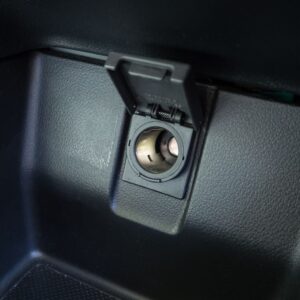The power-to-weight ratio of a vehicle refers to how much power it has relative to its weight. The higher the ratio, the more horsepower the vehicle has per pound of its weight.
High power-to-weight ratios typically mean better acceleration and performance, but why is this the case?
How Does the Power-to-Weight Ratio Affect Vehicle Performance?
A vehicle’s weight only slightly affects its ability to reach its top speed. However, weight plays a bigger role in affecting how long it takes for it to reach its top speed. Because of this, heavier vehicles typically take longer to gain speed despite having superior horsepower.
Of course, large vehicles and high horsepower aren’t mutually exclusive. Smaller vehicles can put out tremendous amounts of power. These vehicles have significantly higher power-to-weight ratios since drivers will get more horsepower per pound.
In terms of performance, vehicles with high power-to-weight ratios accelerate quickly.

How is the Power to Weight Ratio Calculated?
If you want to know how to calculate the power-to-weight ratio, you only need two things: the vehicle’s weight and the engine’s horsepower.
To get the power-to-weight ratio, simply divide the engine’s horsepower by the vehicle’s weight.
For example, the Kremer K4 has 900 horsepower and a weight of 2,260 pounds. Dividing the horsepower by the weight gives you a result of 0.3982. This means that the Kremer K4’s power-to-weight ratio is 0.39 horsepower per pound.
Personal preferences can affect what your ideal ratio is. Some drivers might prefer vehicles that can reach dizzying speeds effortlessly, while others would prefer vehicles that aren’t too fast and difficult to control.
Best Power to Weight Ratio Cars: Solid Picks
Here’s a list of American vehicles that have some of the best power-to-weight ratios in the market.
2023 Dodge Challenger Demon 170

The fastest muscle car of 2023 and arguably the fastest pony car in history, the 2023 Dodge Challenger Demon 170 is a must-have vehicle. Thanks to its 6.2-liter Supercharged Hemi V8 engine, this hefty machine can reach a speed of 60 miles per hour in less than 2 seconds. It’s an insane feat that puts it above other Dodge vehicles. However, what really distinguishes the Demon is its ability to put out over a thousand horsepower.
Power: 1,025 hp
Weight: 4,275 lbs
Power to Weight Ratio: 0.24 hp/lb
2022 Ford GT

Though the 2022 Ford GT sports a small engine, a 3.5-liter twin-turbo V6, its absurd power output and light weight make it a force to be reckoned with. This vehicle can reach 60 miles per hour within 3 seconds, escalating up to a top speed of 216 miles per hour. Despite its size and weight, it can put out 660 horsepower.
Power: 660 hp
Weight: 3,053 lbs
Power to Weight Ratio: 0.22 hp/lb
2019 Chevrolet Corvette ZR1

The Corvette is one of America’s oldest, iconic sports cars. With its sleek, modern design, the 2019 Chevrolet Corvette ZR1 is an aerodynamic beast capable of putting out 755 horsepower. It has a 6.2-liter supercharged V8 engine that can reach a top speed of 212 miles per hour.
Power: 755 hp
Weight: 3,560 lbs
Power to Weight Ratio: 0.23 hp/lb
2016 Dodge Viper ACR

Equipped with one of the most powerful naturally aspirating engines in the industry, the 2016 Dodge Viper ACR can reach a top speed of 177 mph. This vehicle rocks a mighty 8.4-liter V10 engine that lets it travel a quarter-mile in just over 11 seconds.
Horsepower: 645 hp
Weight: 3,354 lbs
Power to Weight Ratio: 0.19 hp/lb
2020 Ford Mustang Shelby GT500

Thanks to its hefty 5.2-liter supercharged V8 engine, the 2020 Ford Mustang Shelby GT500 is a beast of a machine. It has a power-to-weight ratio of 0.18 horsepower per pound. With a top speed of 180 miles per hour, this vehicle is nothing to scoff at.
Horsepower: 760 hp
Weight: 4,183 lbs
Power to Weight Ratio: 0.18 hp/lb
Frequently Asked Questions
Here are some of the most commonly asked questions regarding the power-to-weight ratio.
Is it possible to improve a vehicle’s power-to-weight ratio?
Yes, it’s possible to improve a vehicle’s power-to-weight ratio. There are many ways to do so – most of which revolve around making vehicle modifications. For example, you can remap the electronic control unit to optimize it for better engine performance.
You can also replace your vehicle’s parts and install performance air filters, exhaust systems, and throttle bodies. This improves airflow into the engine, exhaust gas flow, and increases air intake.
Does the weight of a vehicle contribute to its horsepower?
No, the weight of a vehicle doesn’t contribute to a vehicle’s horsepower. Instead, the weight of a vehicle affects how much distance it will travel in a set amount of time. The heavier a vehicle is, the more horsepower is required to keep it moving. This means if a heavy vehicle lacks horsepower, it won’t be able to cover as much distance in a short time.
Does the weight of a vehicle affect its speed?
Yes, the weight of a vehicle affects its speed though it does not affect its top speed. Instead, weight affects how long it takes for a vehicle to reach its maximum speed. Heavier vehicles are slower to accelerate than lighter ones, but that doesn’t mean they won’t reach their top speed eventually.
Any information provided on this Website is for informational purposes only and is not intended to replace consultation with a professional mechanic. The accuracy and timeliness of the information may change from the time of publication.




















